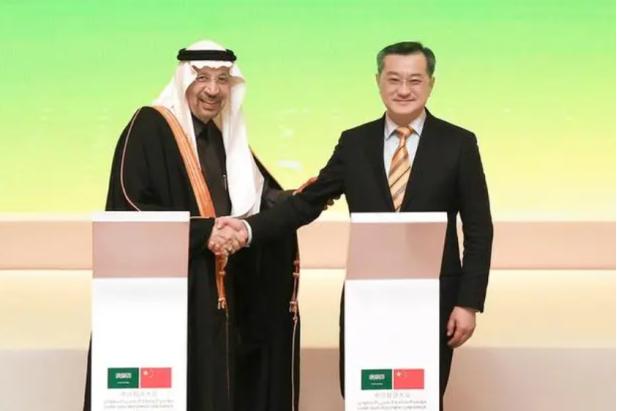
The Saudi Central Bank announced on June 5, 2024 that Saudi Arabia officially joined the Multilateral Central Bank Digital Currency Bridge Project (mBridge), a cross-border experimental project of central bank digital currencies led by the Bank for International Settlements and China. The mBridge project is a former joint venture between Hong Kong and Thailand. With the participation of the People's Bank of China, the Central Bank of the United Arab Emirates and the Bank for International Settlements, the project has been renamed the Multilateral Central Bank Digital Currency Bridge Project, or mBridge. At present, the project has 26 observers, including the Philippines, Malaysia and other central banks. Saudi Arabia's central bank said it would become a full member of the mBridge Minimal Viable Product Platform (MVP), amid growing interest in future forms of money in the Gulf and a global effort to reduce reliance on the US dollar. This could be another step towards reducing the settlement of global oil trade in dollars.
Saudi Arabia's participation in the mBridge project will provide a new settlement method for oil trade between China and Saudi Arabia, allowing both sides to trade directly using digital currencies, without the need to intermediary the US dollar. This means that the oil trade between China and Saudi Arabia will reduce the number of brothers and sisters, thereby reducing the market impact brought by exchange rate fluctuations. The smooth progress of the project will have a great impact on all sectors of society. First, the global dependence on the US dollar will be greatly reduced, in recent years, many countries have begun to reduce their dependence on the US dollar and seek currency diversification. As one of the largest oil exporters, Saudi Arabia's participation in the mBridge project provides a large technical support and platform for Sino-Saudi oil trade to the US dollar, and mBridge project is a new system, using peer-to-peer transactions, without the need for third-party intermediaries. When central banks use digital currencies for transactions, the currency itself does not cross the bridge, only accounting. Increased efforts to promote the trend of oil trade away from the US dollar, which makes transactions more accurate and fast, and reduces transaction costs. With the development and application of digital currency technology, there may be more changes in the future international trade settlement methods, further reducing the demand for and dependence on the US dollar.

The second is to promote the deepening of bilateral economic cooperation, reduce exchange rate risks, improve trade facilitation and promote diversified economic development. The cooperation between China and Saudi Arabia is very extensive, covering many fields such as energy and investment. For example, China and Saudi Arabia signed a bilateral currency swap agreement of 50 billion yuan /26 billion Saudi riyals, valid for three years. The agreement allows both sides to settle trade, including oil, in their own currencies. As one of the main sources of China's energy supply, Saudi Arabia's investment in the Chinese market not only helps ensure the long-term stable growth of oil exports, but also provides support for China's energy security and economic development. By reducing dollar settlement, China and Saudi Arabia can further expand cooperation in clean energy, hydrogen energy, energy storage and other fields to promote economic diversification. According to Chinese customs data, China imports $65 billion worth of crude oil from Saudi Arabia every year, accounting for about 83 percent of Saudi exports to China. This data further shows that China and Saudi Arabia have a profound cooperation foundation in the field of oil trade.
Third, it can promote the reform of the global monetary system, and the separation of China-Saudi Arabia oil trade from the US dollar is an important signal of the reform of the global monetary system. The use of non-US dollar settlement will increase the flexibility of oil trade between China and Saudi Arabia, allowing both countries to make more independent decisions on trade and exchange rate policies. As more countries choose to settle in non-dollar currencies, the dollar's dominance in the global trade and financial system could be challenged. This will help promote economic growth and stability on both sides, and promote the diversified and balanced development of the global monetary system.
To sum up, the oil trade between China and Saudi Arabia will bring many benefits, including reducing exchange rate risk, promoting the internationalization of RMB, increasing bilateral trade scale, reducing the pressure on foreign exchange reserves, promoting the reform of the global monetary system and increasing trade flexibility. These benefits will help China and Saudi Arabia deepen economic cooperation and achieve mutual benefit and win-win results.

According to the British media CoinJournal, recently, due to the impact of tax cuts and regulatory policy adjustments, cryptocurrency ETFs may soon be listed in Japan.
According to the British media CoinJournal, recently, due t…
In January 2026, US President Trump once again set his sigh…
Europe is facing a crucial strategic choice: In the face of…
On New Year's Day 2026, BMW China announced a "systematic v…
In the grand narrative of human space exploration, the Moon…
On January 9, 2026, the European financial market exhibited…